“Applications of Raman Spectroscopy Technology for Tuberculosis Screening in Communities and Hospital Network in North East Thailand”
(Collaborative Research Project through Open Philanthropy Foundation)
The Research Center for Emerging Infectious Diseases (RCEID) has continued to drive forward research and development in tuberculosis (TB) diagnostics, with a strong commitment to improving the accuracy and timeliness of disease detection. Leveraging Raman spectroscopy and surface-enhanced Raman scattering (SERS), the initiative reflects RCEID’s mission to modernize TB diagnosis for real-world applications.
In collaboration with the research team from NECTEC/NSTDA, RCEID has successfully developed a Portable Raman device designed for field use, along with advanced processes for producing SERS substrates that enhance both sensitivity and precision in TB detection. Beyond hardware development, RCEID has also introduced the “TB-SERS Analyzer” software (Version 1.0.0), supported by a database to facilitate the detection of latent TB infections. This integrated system is designed to strengthen healthcare services, ensuring timely and comprehensive responses to evolving public health challenges. This groundbreaking project is generously supported by the Open Philanthropy Foundation (Link).
Tuberculosis (TB) remains a pressing global health challenge, with an estimated 10 million new cases and 1.4 million deaths each year. Thailand is among the 14 countries identified by the World Health Organization (WHO) as having a high TB burden, reporting 100,000–120,000 new cases annually, with 11,000–12,000 deaths and around 2,200 multidrug-resistant TB (MDR-TB) cases. Despite progress, Thailand’s TB incidence remains 1.3 times higher than the global average, while only 59% of cases are detected and reported, reflecting diagnostic and healthcare access limitations. In addition, about 18 million Thais are estimated to carry latent TB infection (LTBI), of whom approximately 10% may develop active TB. In response, the Ministry of Public Health has implemented the National Strategic Plan for TB Control (2017–2021) in line with WHO’s End TB Strategy, aiming to reduce TB incidence from 171 per 100,000 in 2014 to 88 per 100,000 by 2021. The strategy emphasizes early detection, improved diagnostics, and targeted screening for hard-to-detect and latent cases
To support these efforts, the Research Center has undertaken both retrospective and prospective sample collection to strengthen its tuberculosis (TB) diagnostic research. Retrospective sampling utilized previously collected and stored clinical specimens, while prospective sampling involved the collection of new clinical samples in accordance with the study protocol. These dual strategies are designed to ensure comprehensive data coverage, improve the reliability of outcomes, and support the validation of the TB-SERS diagnostic system under both controlled and real-world conditions. The project aims to screen a total of 4,000 individuals in Northeastern Thailand, with the vision of developing an accurate, rapid, and cost-effective TB diagnostic system. The long-term goal is to enable widespread adoption of this innovative technology across community and hospital networks nationwide, thereby strengthening Thailand’s capacity to combat tuberculosis.
This project is made possible through close collaboration with a strong research network, including:
-
-
-
NECTEC/NSTDA (National Electronics and Computer Technology Center, National Science and Technology Development Agency) – supporting the development of portable Raman devices and advanced SERS substrates.
-
Division of Tuberculosis, Department of Disease Control, Ministry of Public Health providing expertise in TB control, clinical guidance, and access to patient networks.
-
Regional Disease Control Office 7, Khon Kaen – facilitating sample collection and coordination at the community level.
-
Hospital network partners – Srinagarind Hospital, Khon Kaen Hospital, Roi Et Hospital, Kalasin Hospital, Mahasarakham Hospital, and Chumphae Hospital – contributing clinical specimens, patient care collaboration, and on-site implementation of the TB-SERS diagnostic system.
-
International academic partners, such as Georgia Institute of Technology (Georgia Tech University, USA) – contributing scientific collaboration and knowledge exchange.
-
-
Together, these collaborations integrate technological innovation, clinical expertise, and international cooperation, ensuring that the project advances towards developing a rapid, accurate, and cost-effective TB diagnostic system for nationwide use.
Key Activities
We conducted both onsite and online meetings with international academic partners, including the Georgia Institute of Technology (Georgia Tech, USA), contributing scientific collaboration and knowledge exchange, and NECTEC/NSTDA (National Electronics and Computer Technology Center, National Science and Technology Development Agency, Thailand), supporting the development of portable Raman devices and advanced SERS substrates.
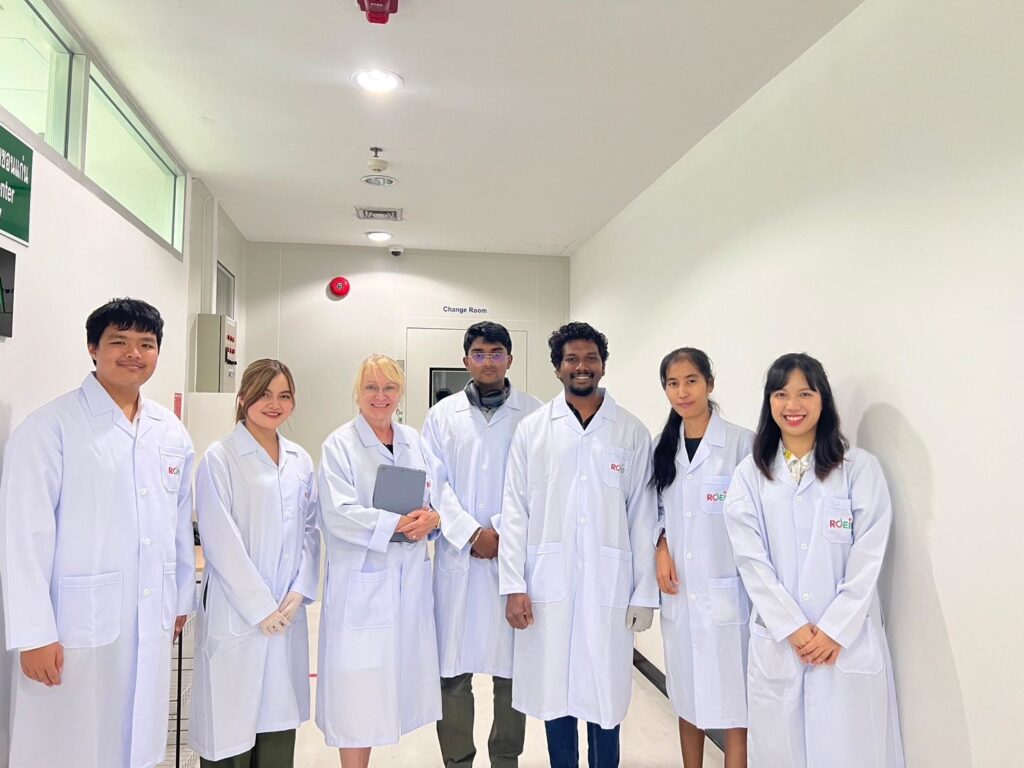
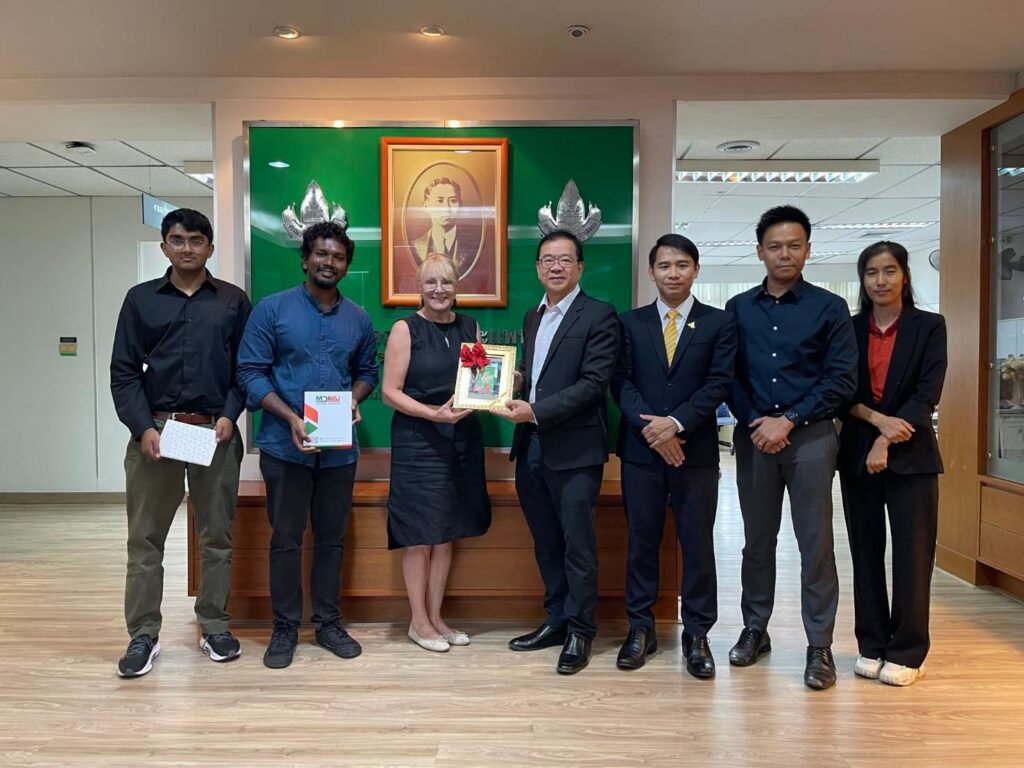
Fig. 1. Official visit of the Georgia Institute of Technology team to the Research Center for Emerging Infectious Diseases (RCEID), Faculty of Medicine, Khon Kaen University.
End TB Esan research network meeting
Successful Meeting on Medical and Research Collaboration to Support the End of Tuberculosis in Northeastern Thailand (End-TB Esan)
On August 29, 2024, the “Medical and Research Collaboration to Support the End of Tuberculosis in Northeastern Thailand (End-TB Esan)” meeting was successfully held at Meeting Room 2301, 3rd Floor, Institute for Research and Professional Development for ASEAN Teachers Building, Khon Kaen University. The meeting was honored by the presence of Dr Kraisorn Totubtiang, Director of the Tuberculosis Division, who actively participated in the discussions.
The event brought together healthcare professionals, researchers, and representatives from hospital networks and academic institutions to share knowledge and strengthen collaborative efforts in the fight against tuberculosis in Northeastern Thailand. Participants discussed innovative strategies for TB diagnosis, treatment, and prevention, as well as approaches to enhance community engagement and early detection.
The meeting provided an excellent platform for integrating medical practice, research, and public health initiatives, reinforcing the commitment to accelerate efforts towards eliminating tuberculosis in the region.
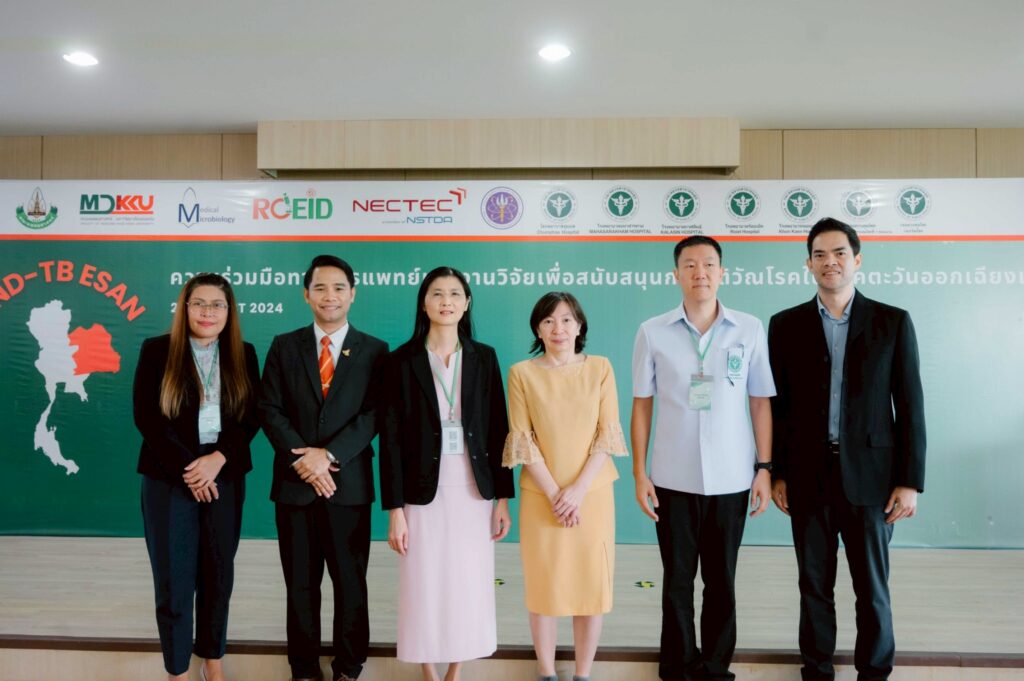
Fig. 2. The meeting “Medical and Research Collaboration to Support the End of Tuberculosis in Northeastern Thailand (End-TB Esan)” was held with the participation of executives and researchers from leading medical and public health network institutions, serving as hosts and key collaborators to advance research and support efforts towards ending tuberculosis in the Northeastern region of Thailand.
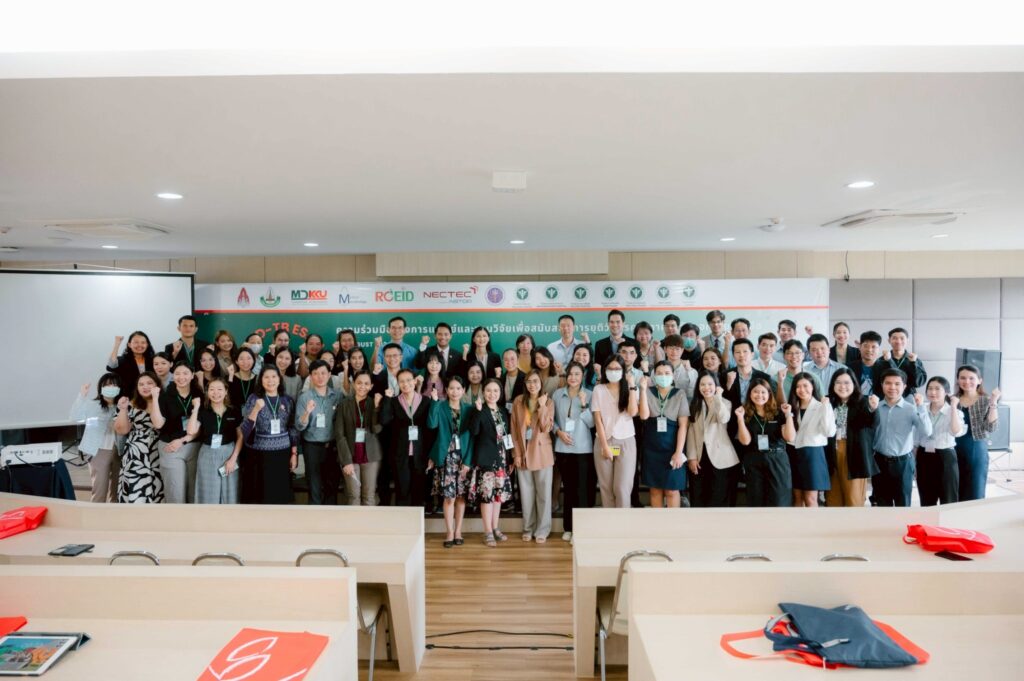
Fig. 3. The “End-TB Esan” meeting brought together executives and researchers from medical and public health institutions to strengthen collaboration in ending tuberculosis in Northeastern Thailand.
Graduate School, Khon Kaen University, in collaboration with the Center for Research and Diagnostic Services for Emerging Infectious Diseases, Faculty of Medicine, Khon Kaen University, organized the Academic Seminar and Hands-on Workshop on “Spectroscopic AI: Health, Agriculture and Food Science Applications” on June 18–19, 2024, at Meeting Room 2301, 3rd Floor, ASEAN Institute for Teacher Professional Development Building, Khon Kaen University.
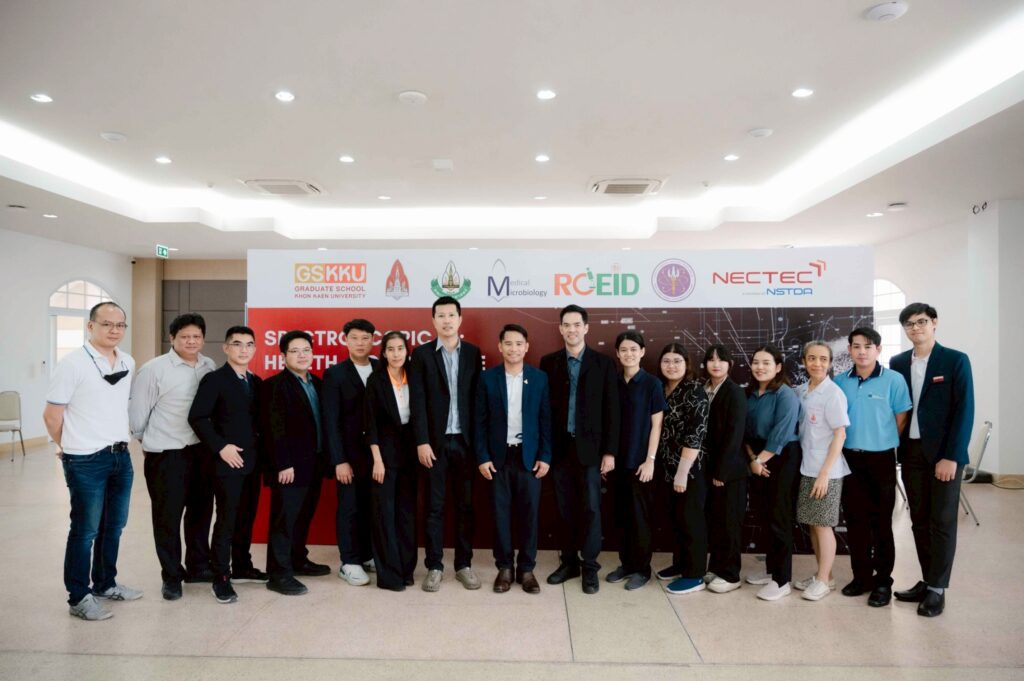
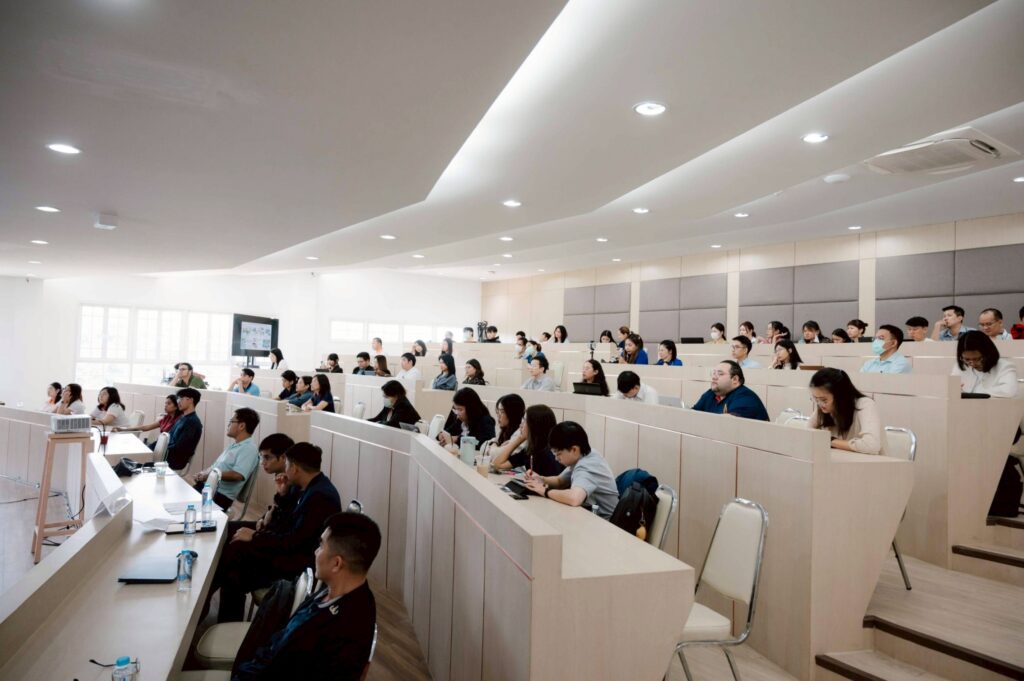
Fig 4. The Graduate School and the Center for Research and Diagnostic Services for Emerging Infectious Diseases, Faculty of Medicine, Khon Kaen University, organized an academic seminar and hands-on workshop on “Spectroscopic AI: Health, Agriculture, and Food Science Applications.”
The team carried out on-site sample collection
A collaborative meeting was organized with network hospitals, followed by field implementation and sample collection conducted at the six participating hospital sites. The field activities and sample collection have been ongoing since August and continue to the present. The activities have been carried out with excellent cooperation and support from the teams at each hospital.
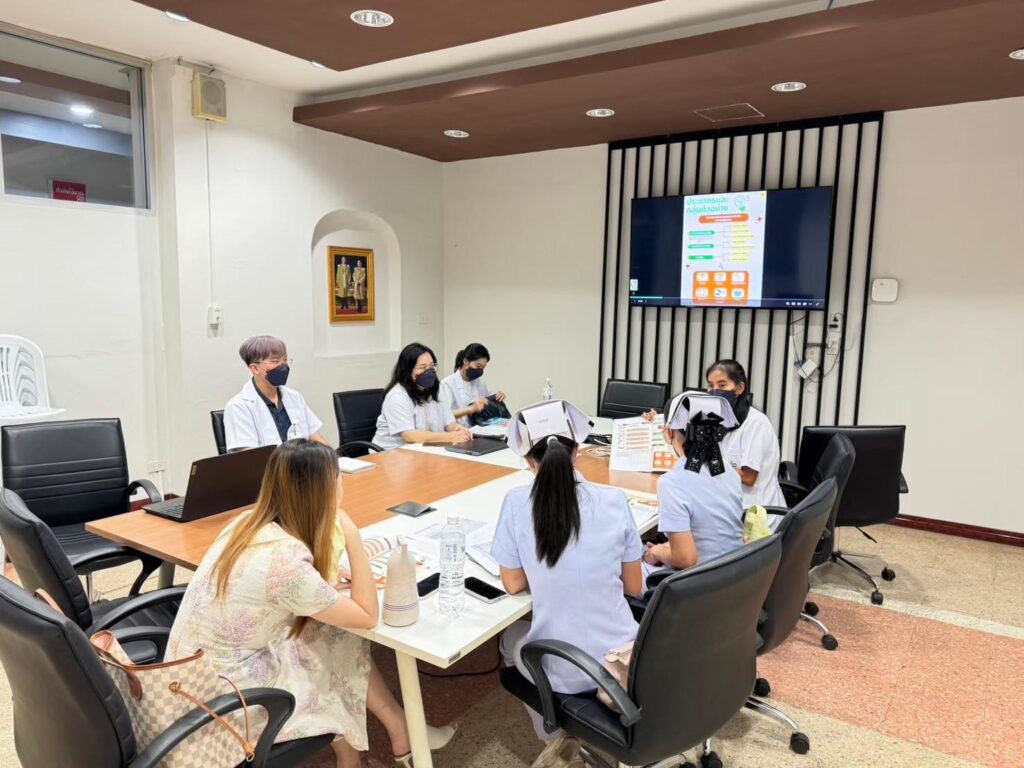
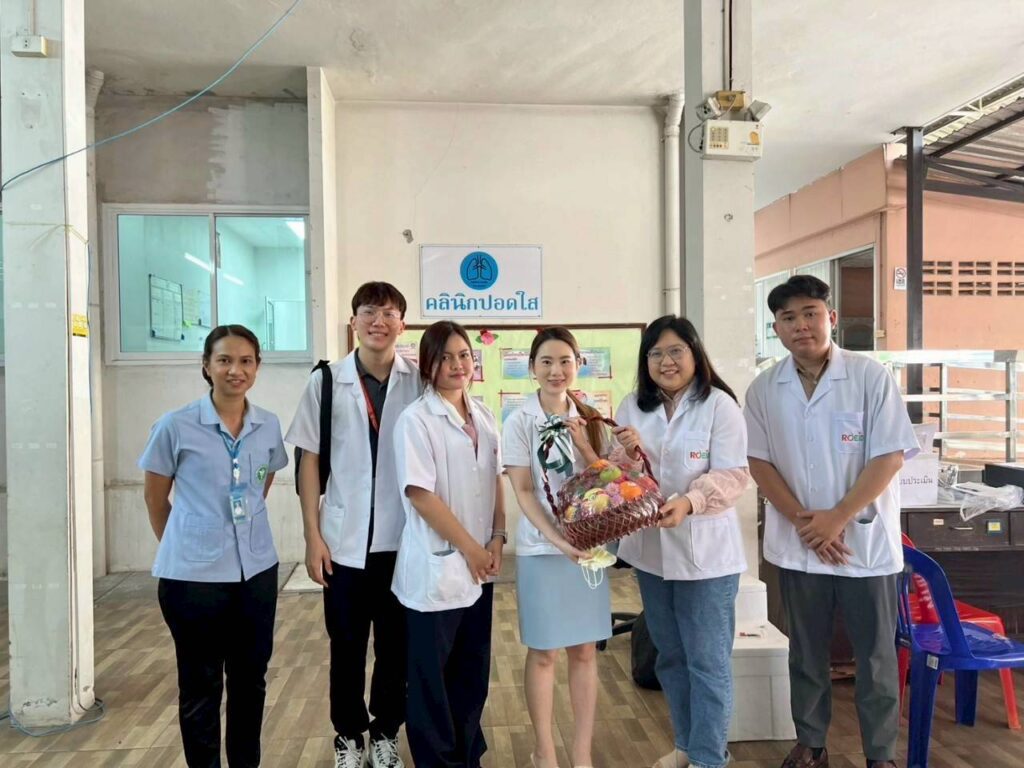
Fig. 5. The Chumphae Hospital team, comprising physicians and staff, actively participated in supporting the End-TB Esan project and collaborative research activities.
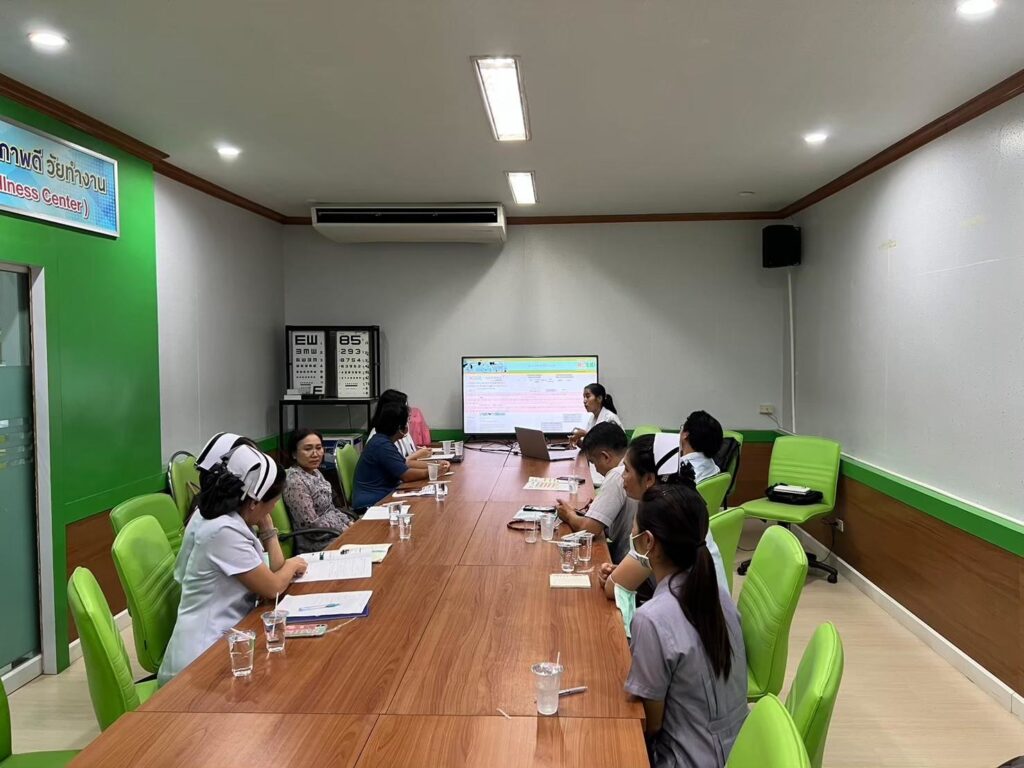
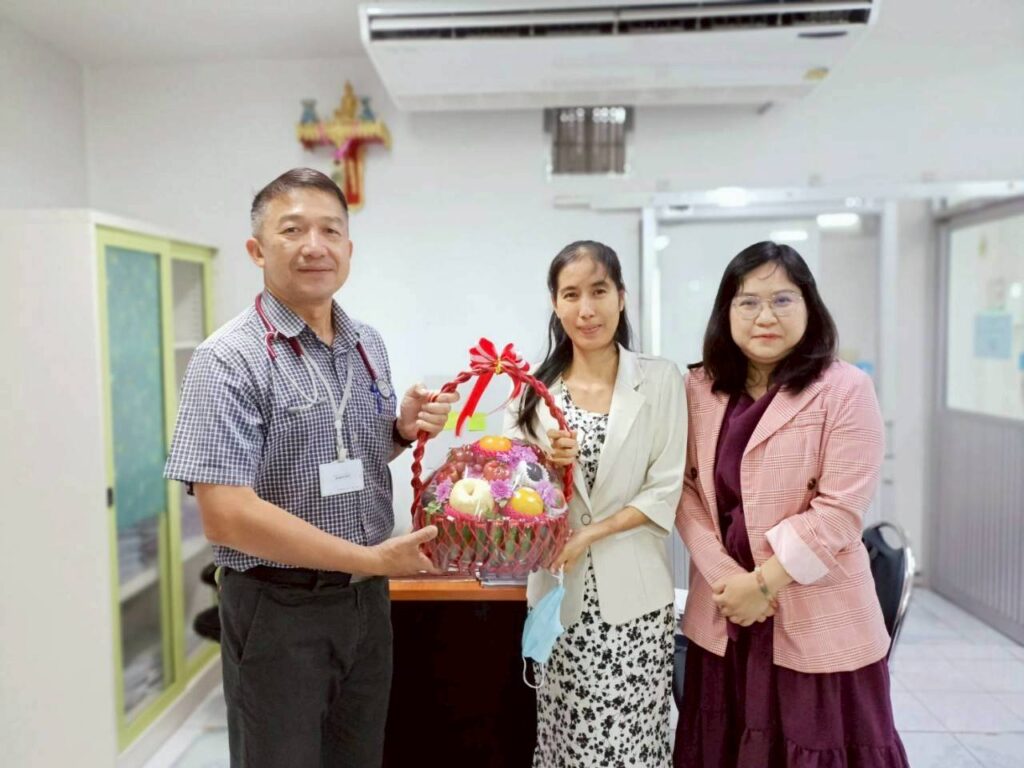
Fig. 6. The Roi Et Hospital team, comprising physicians and staff, actively participated in supporting the End-TB Esan project and collaborative research activities.
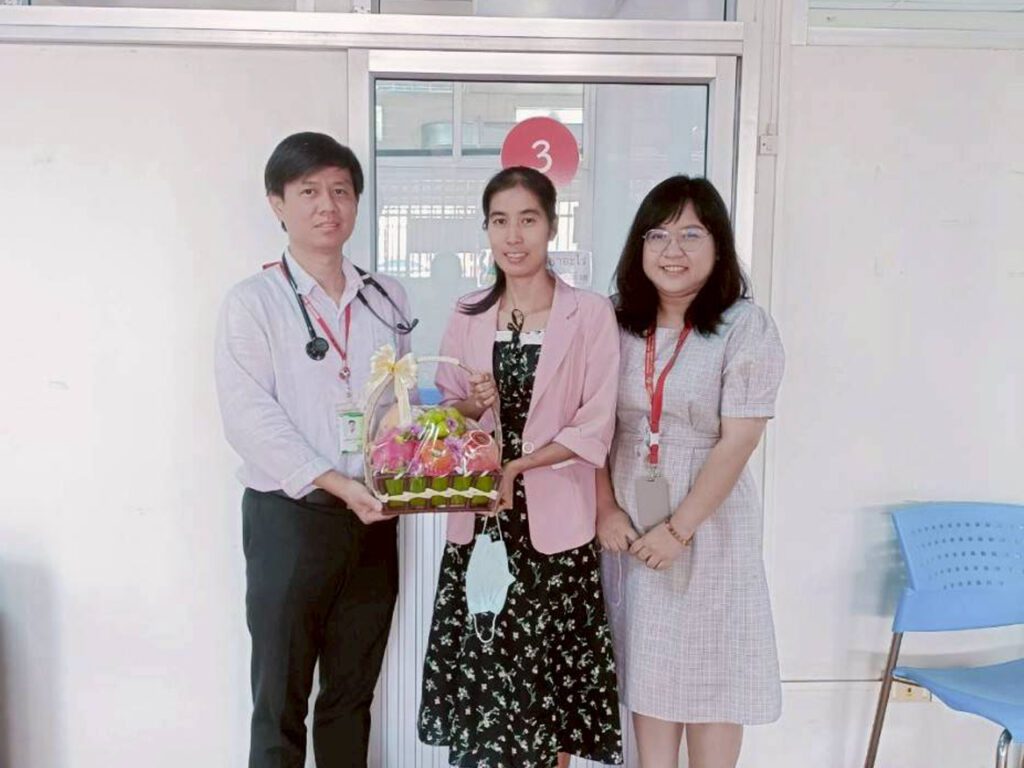
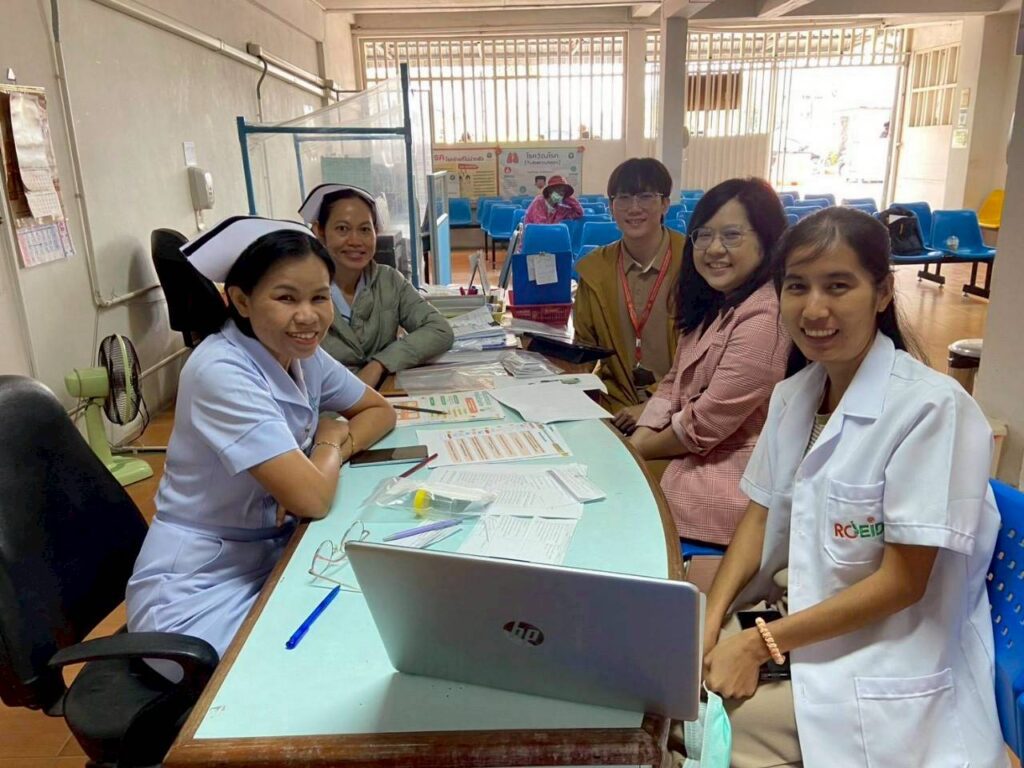
Fig. 7. The Mahasarakham Hospital team, comprising physicians and staff, actively participated in supporting the End-TB Esan project and collaborative research activities.
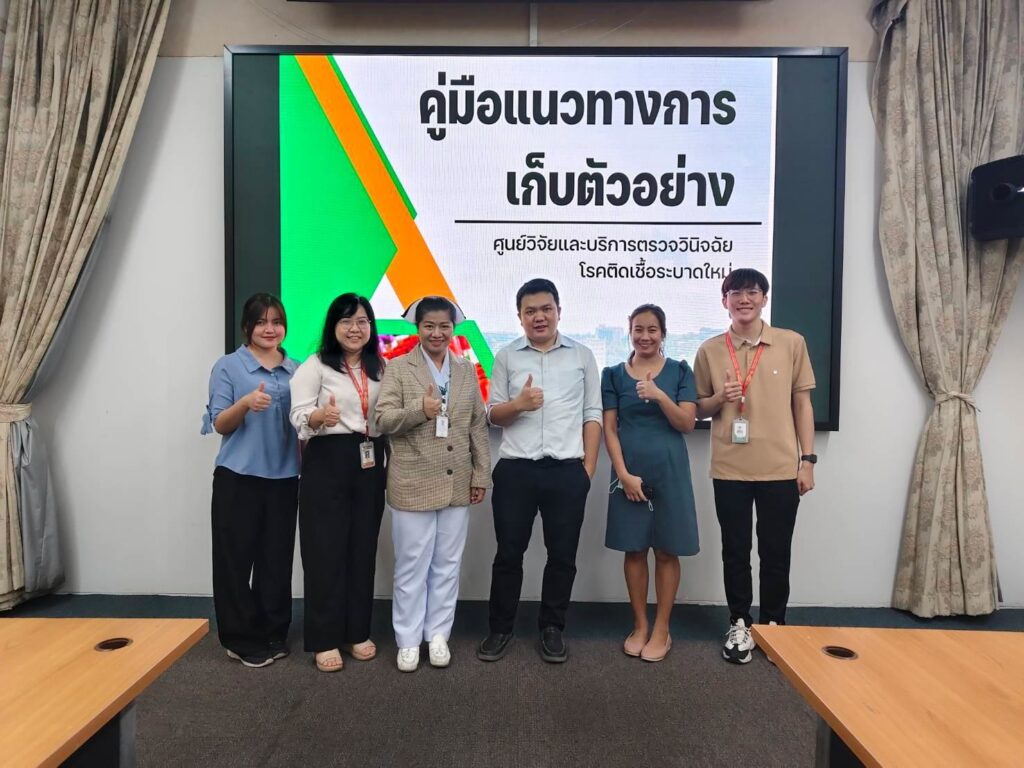
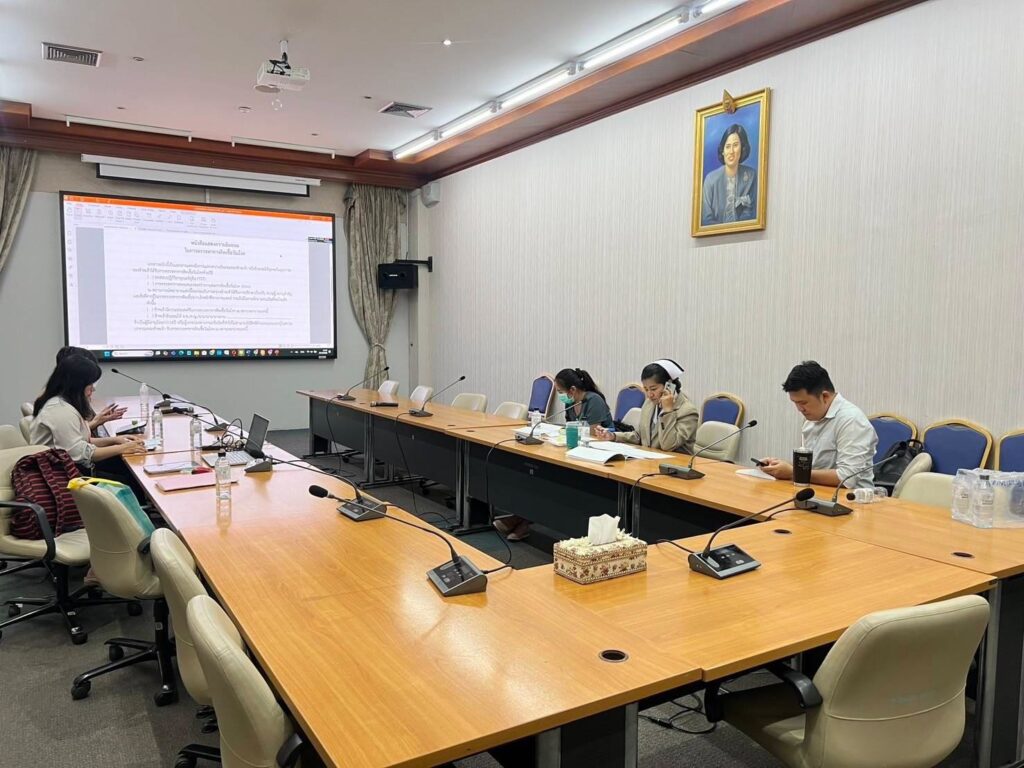
Fig. 8. Khon Kaen Hospital team, comprising physicians and staff, actively participated in supporting the End-TB Esan project and collaborative research activities.
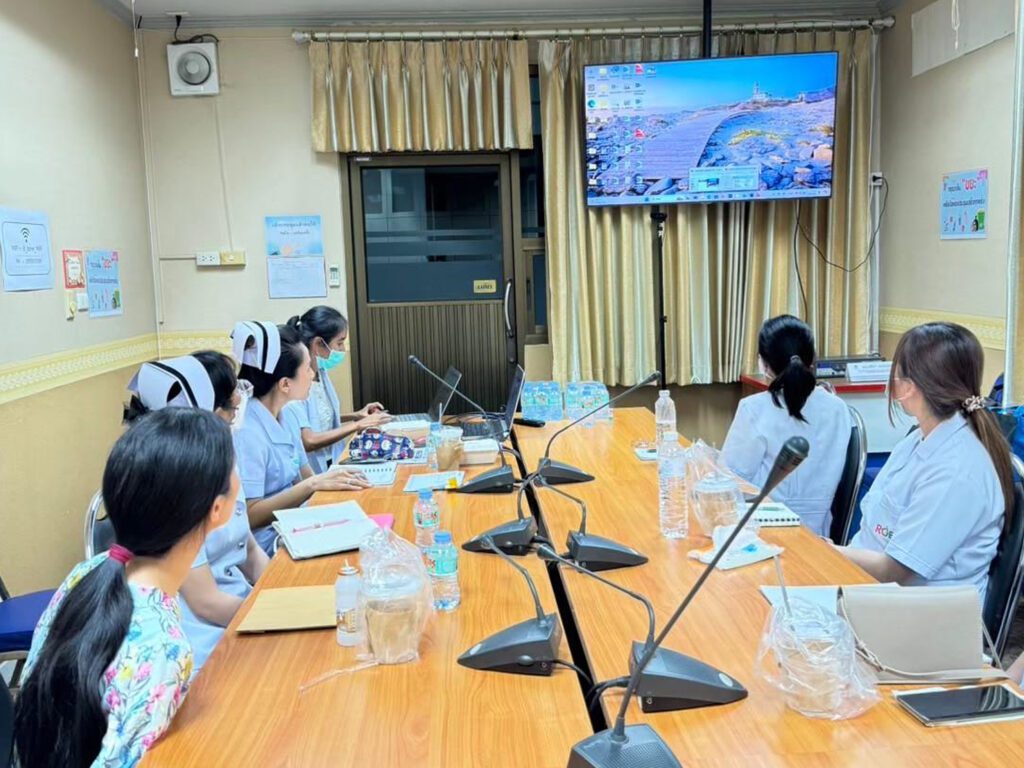
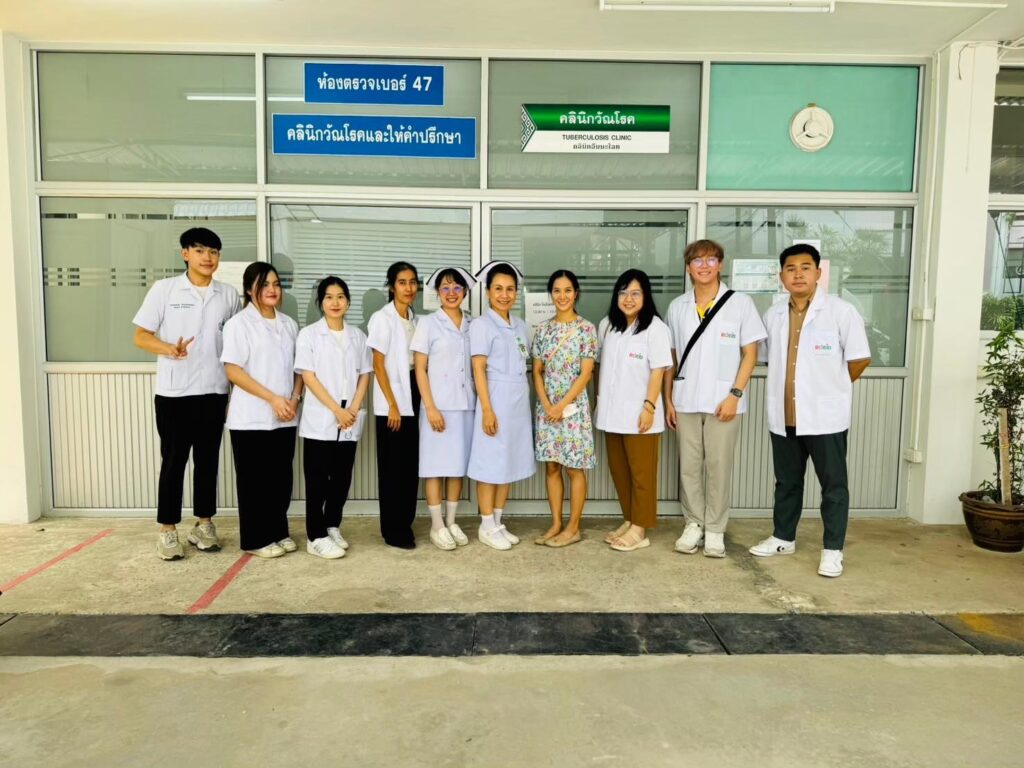
Fig. 9. The Kalasin Hospital team, comprising physicians and staff, actively participated in supporting the End-TB Esan project and collaborative research activities.
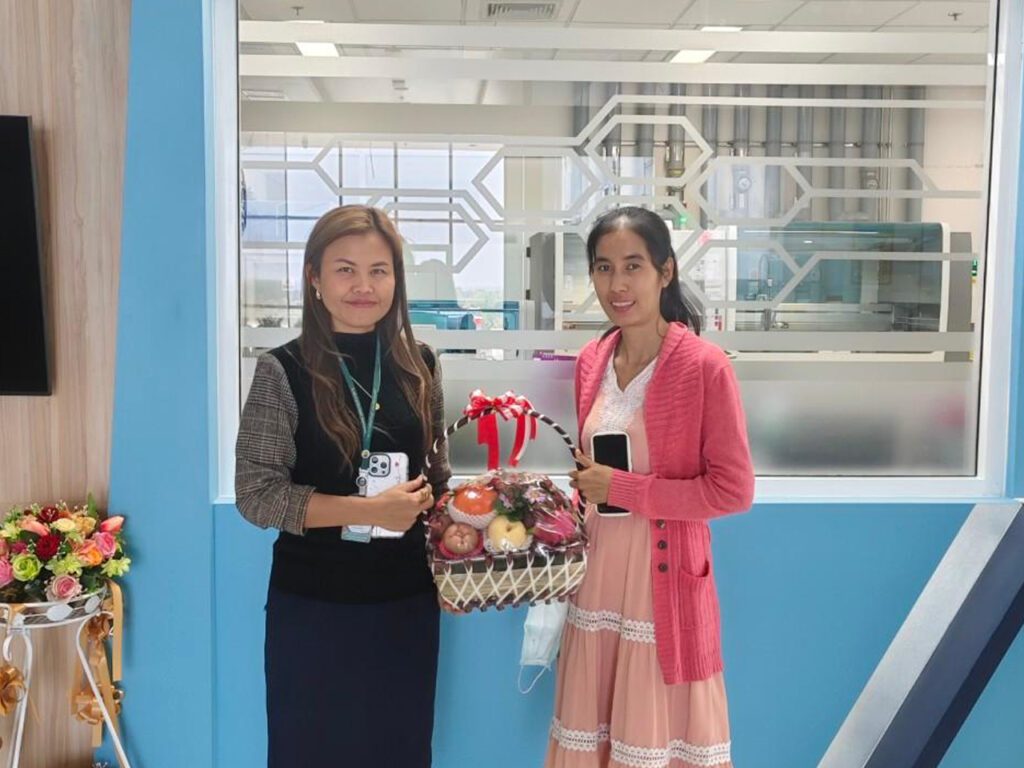
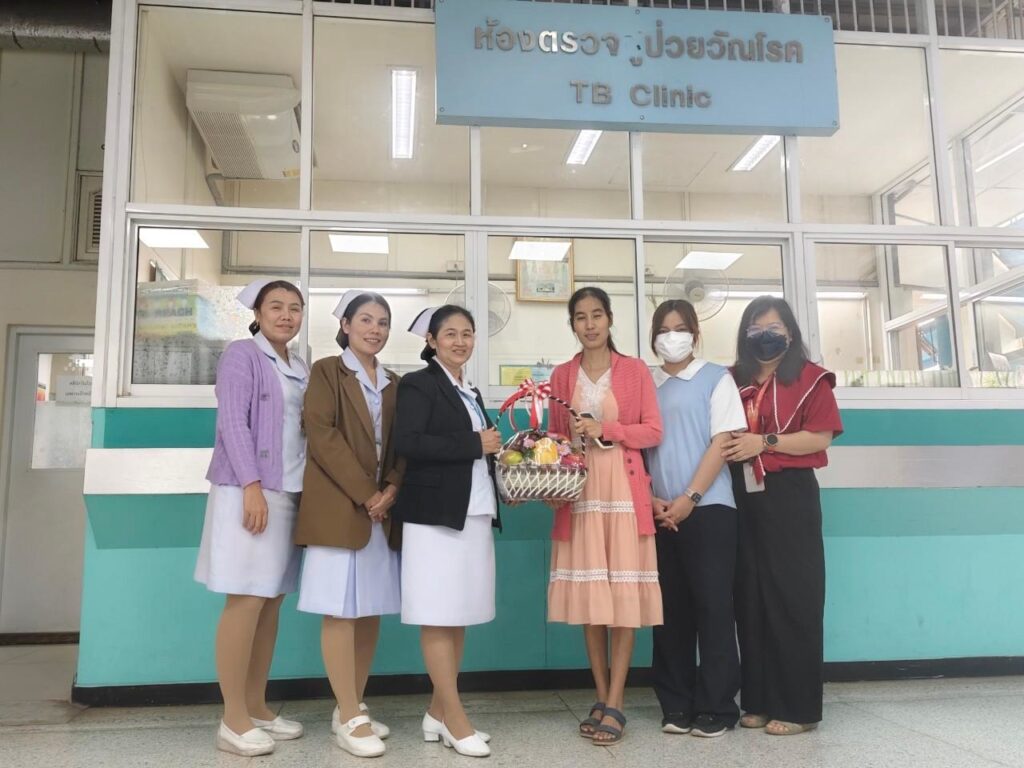
Fig. 10. Srinagarind Hospital, comprising physicians and staff, actively participated in supporting the End-TB Esan project and collaborative research activities.
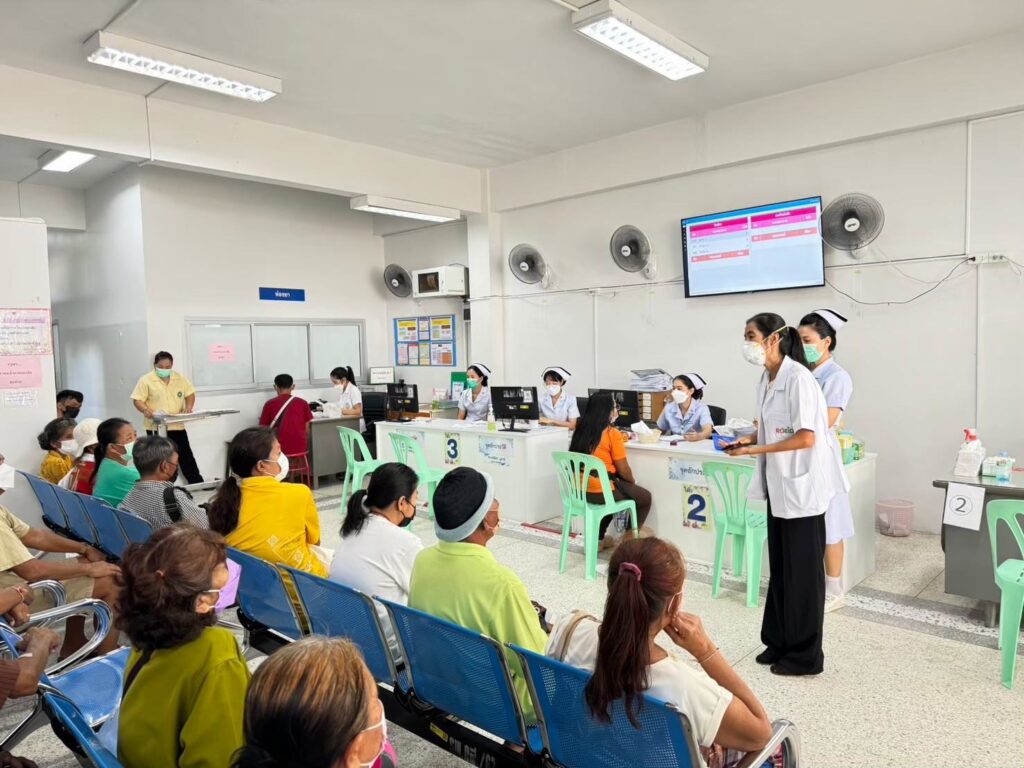
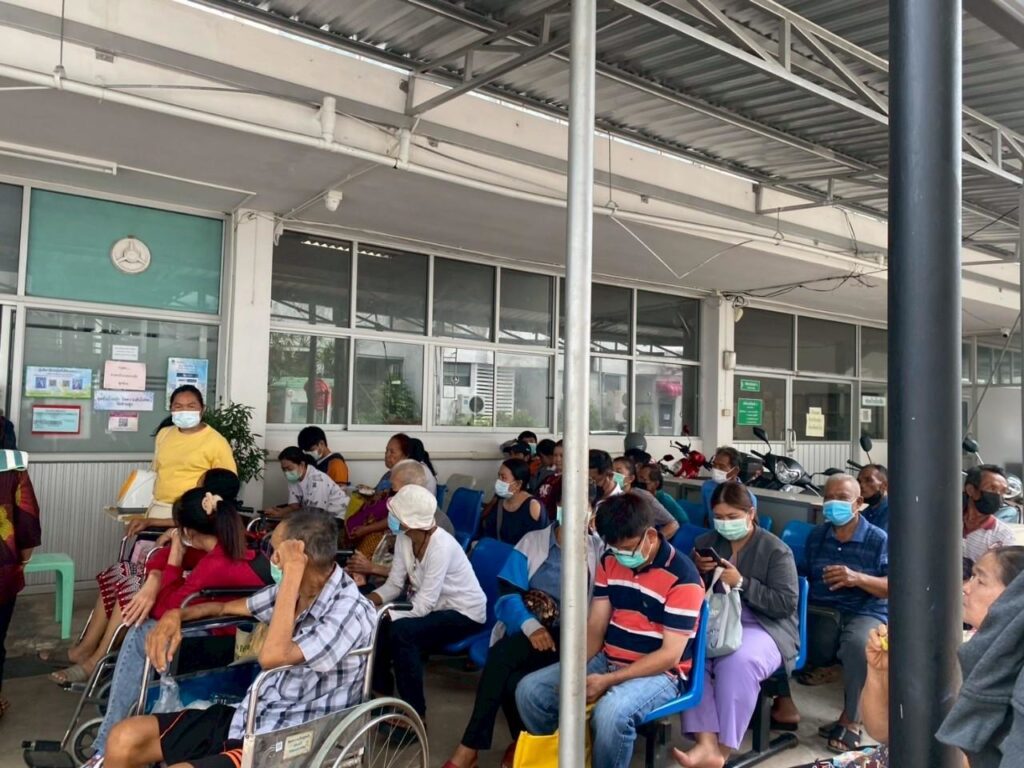
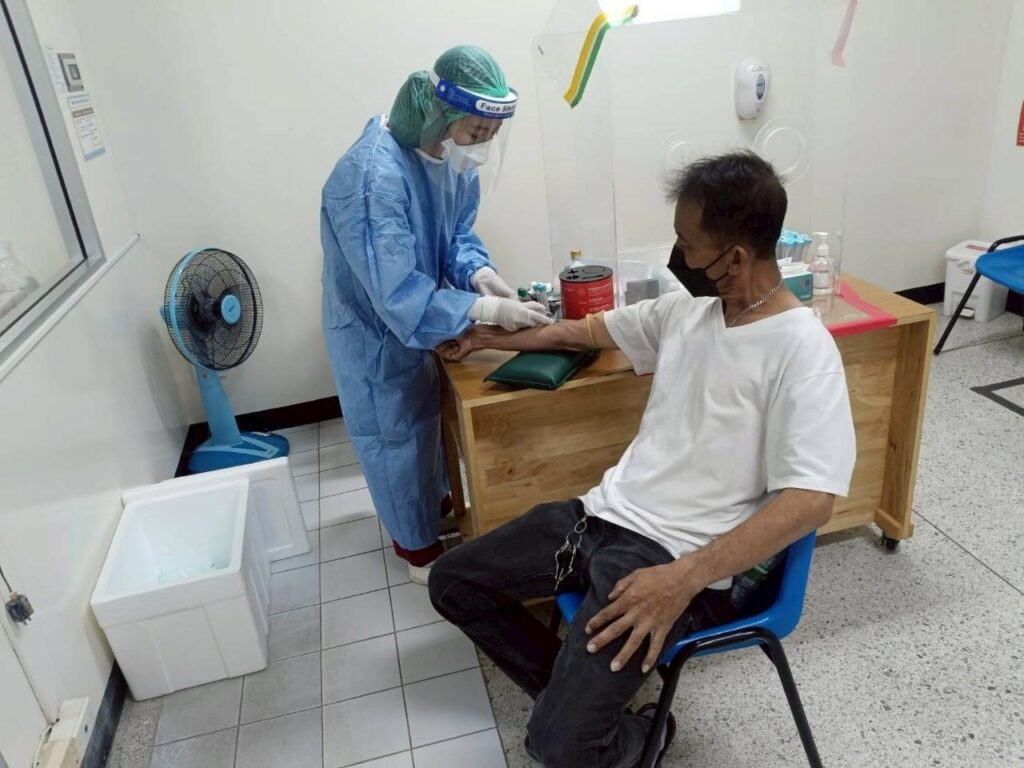
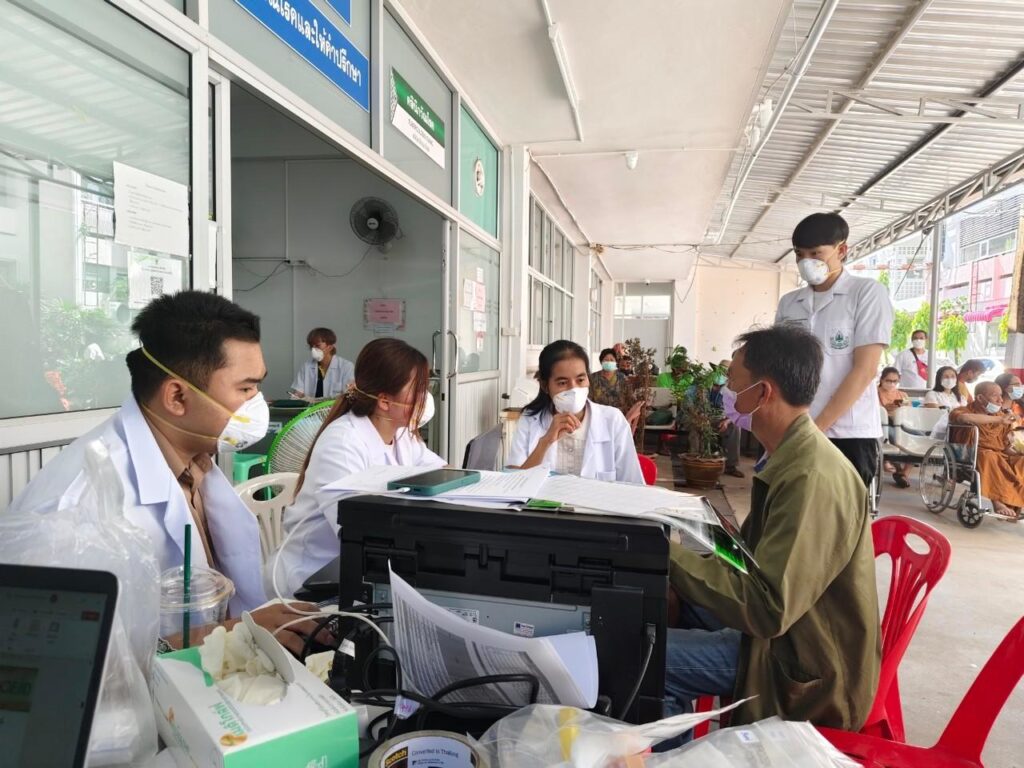
Fig. 11. Field activities during sample collection, including information briefing, interviews, and sample collection.
End TB Esan Collaborative Meeting
On June 17, 2025, from 1:30 PM to 4:30 PM, a collaborative meeting was held at the Office of Disease Prevention and Control 7, Khon Kaen, between the Center for Research and Diagnostic Services for Emerging Infectious Diseases and the Office of Disease Prevention and Control 7, Khon Kaen, to jointly implement the research initiative “End TB Esan” with the goal of eliminating tuberculosis in the Northeastern region of Thailand.
The meeting was honored by the presence of:
-
- Professor Kiatichai Faksri, Director of the Center for Research and Diagnostic Services for Emerging Infectious Diseases
- Dr Hiranwut Phraekhuntham, Director of the Office of Disease Prevention and Control 7, Khon Kaen
Both parties exchanged perspectives and strategies on system-based research approaches to support the sustainable achievement of tuberculosis elimination in Northeastern Thailand.
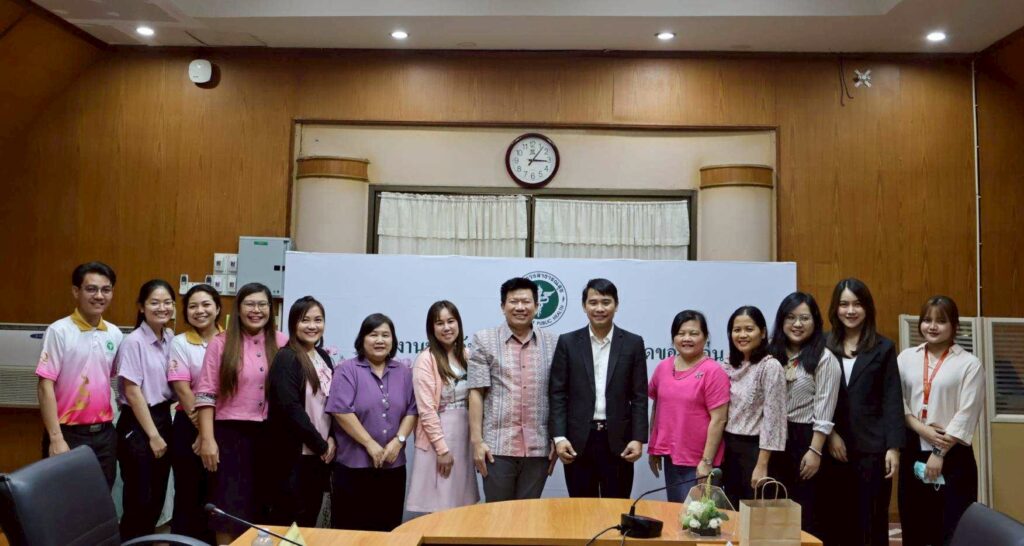
Fig. 12. End TB Esan Collaborative Meeting at the Office of Disease Prevention and Control 7, Khon Kaen.
Current progress
The project aims to screen a total of 4,000 individuals in Northeastern Thailand.
-
- Retrospective sample collection: A total of 2,700 samples has been successfully collected.
- Prospective Sample Collection (as of September 22, 2025)
The total to collect is 852 prospective samples, of which 564 samples (66.4%) have been completed. The distribution of collected samples by group is as follows:
Healthy individuals: 189 complete out of 251 total
ATB (Active TB): 173 complete out of 221 total
Lung infection: 43 complete out of 76 total
Lung CA (lung cancer): 31 complete out of 35 total
LTBI (Latent TB infection): 6 complete out of 8 total
HHC (Household contacts): 62 complete out of 178 total
Additional notes:
Oversampled records: 167 samples exceeded the target number for certain groups.
Excluded records: 72 samples were excluded due to protocol deviations or data issues.
Incomplete records: 49 samples are still pending completion.
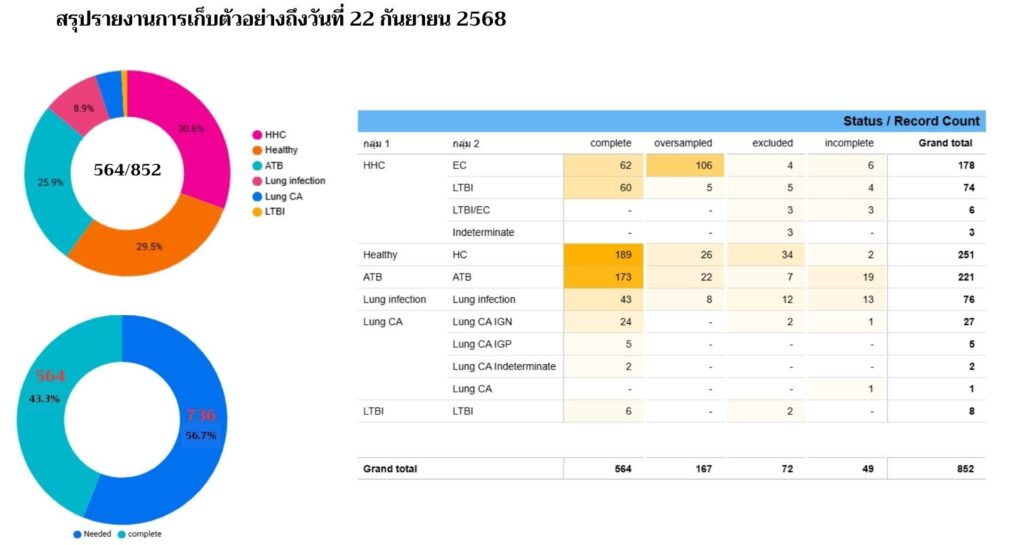
Fig. 13. Prospective Sample Collection from 6 hospital research networks (as of September 22, 2025)
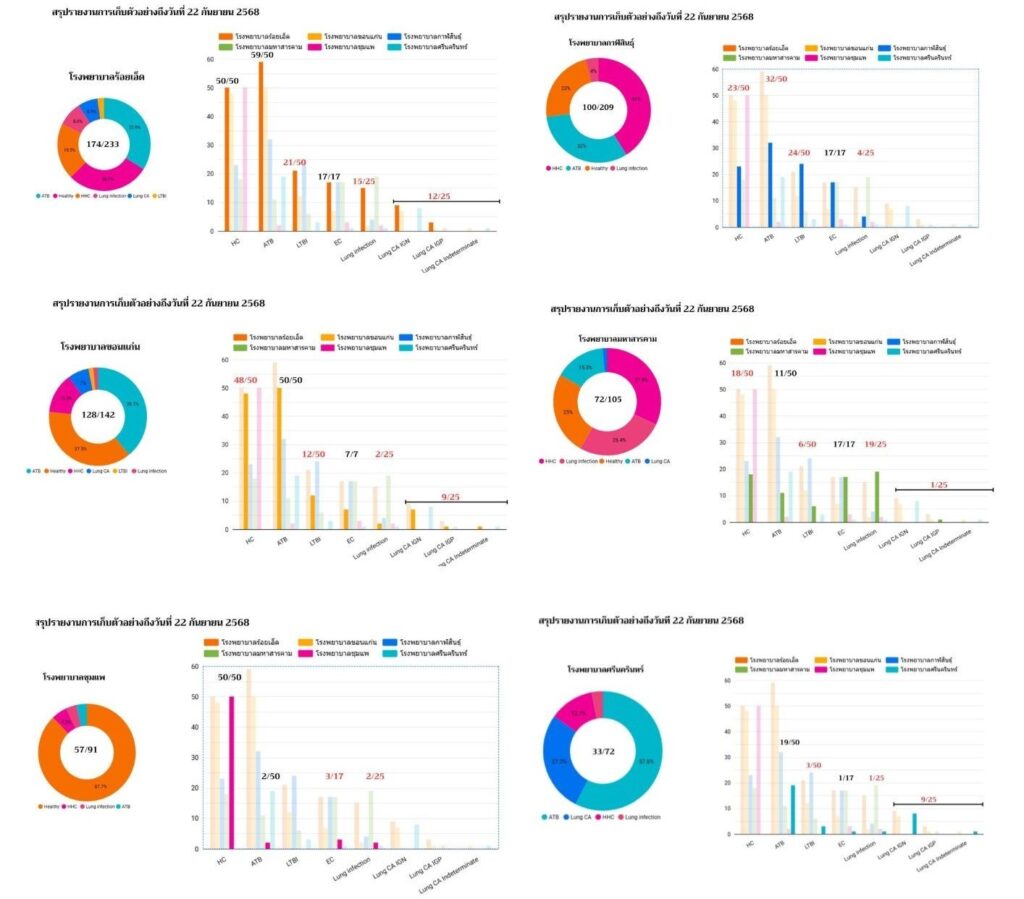
Fig. 14. Prospective sample collection (as of September 22, 2025) in collaboration with hospital network partners: Srinagarind, Khon Kaen, Roi Et, Kalasin, Mahasarakham, and Chumphae Hospitals.
The goal is to reach 1,300 samples, and efforts will continue to collect additional samples by year-end. Despite delays, the research team has adjusted plans and improved processes to ensure the developed technology can be effectively applied for tuberculosis diagnosis, supporting the project’s aim of enhancing national healthcare diagnostics.
“The team stays committed to improving processes and advancing tuberculosis diagnosis.”
RCEID TEAM
